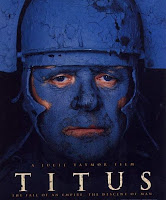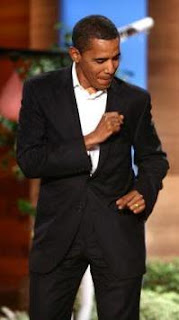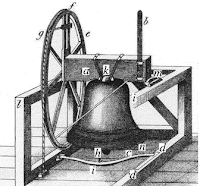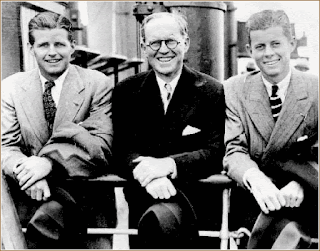Dorothy Rabinowitz’s op-ed in yesterday’s Wall Street Journal, titled “Why Obama is No Roosevelt” comes from the comparisons made to FDR that have followed President Obama since the run-up to the 2008 election. In September 2010, The National Bureau of Economic Research declared that the recession was over in June 2009, so do the comparisons still hold?
The New York Times has plenty of stats from yesterday’s elections on their homepage today, but let’s go back in American History and take a closer look at the mid-term election shifts right around the Great Depression. In the same breath, Obama comparisons go back and forth between FDR and his predecessor, Herbert Hoover.
This info on the House comes from the Office of the Clerk of the US House of Reps.
Hoover’s First Congress: 71st Congress (1929 – 1931): 270 Republicans, 164 Democrats, 1 Farmer-Labor
Hoover’s Second Congress: 72nd Congress (1931 – 1933): 218 Republicans, 216 Democrats, 1 Farmer-Labor
FDR’s First Congress: 73rd Congress (1933 – 1935): 313 Democrats, 117 Republicans, 5 Farmer-Labor
FDR’s Second Congress: 74th Congress (1935 – 1937): 322 Democrats, 103 Republicans, 7 Progressives, 3 Farmer-Labor
Compare this with the current 111th Congress where 255 Democrats and 178 Republicans are seated in the House, and the projected gain of 60 seats for Republicans, a larger gain than the 1994 mid-term that reversed Democrat dominance of the House. Obviously, an exact repeat performance of history is hard to envision—we are certainly a different nation, living in different times, but how the changes will play out in the 112th congress, with Republicans gaining a number of seats in the Senate, remains to be seen.
Blog: Yale Press Log (Login to Add to MyJacketFlap)
JacketFlap tags: Philosophy, Political Science, American History, History, Add a tag
A few weeks ago, we celebrated Columbus Day and the discovery of America. Or at least he made the physical discovery, and even that is contested. What other Americas were there to discover? One might say: the political discovery of the American Republic’s early successes. Alexis de Tocqueville and his Democracy in America were crucial, but who would cite a French aristocrat with discovering the importance of American democracy? Everyone.
Born in 1805, in the midst of the Napoleonic wars, Tocqueville saw several regime changes before embarking on his voyage to America: Napoleon to the restored Bourbons—Napoleon again!—back to the Bourbons—and over to the July Monarchy by 1830. Moreover, his family had suffered terribly as loyalists to the Bourbons during the French Revolution; some were executed; his mother and father imprisoned. At age twenty-five in April 1831, Tocqueville boarded Le Havre, bound for America with good friend, Gustave de Beaumont. Like many of the best discoveries, Tocqueville stumbled into what he found. To say that he thought of his trip as a distraction, or even an escape from the new regime he despised, is to say very little.
In the Introduction to Letters from America, Frederick Brown notes that “Tocqueville declared in private that the commission was hardly more than a pretext…. Tocqueville was seldom of one mind about anything, and he did not view matters without ambivalence when he climbed aboard.” After nine months, Tocqueville had what he needed to write Democracy in America. This new volume includes the complete set of translated letters from Tocqueville’s time in America, with relevant excerpts from Beaumont’s correspondence. The story of Brown’s thoughts on the letters was covered last year by Charles McGrath in the New York Times.
From this field trip, the younger Tocqueville is revealed through his letters home. “Would Tocquevilles who had escaped death almost four decades earlier survive this time around? Would he, who carried royal credentials to America, soon find himself in the vanguard of a new generation of émigrés? Was he a researcher or a fugitive?” Questions like these raced through his mind, and now, we have the field notes from one of the most important political philosophers of modern times, taken on our very home turf.
Blog: Yale Press Log (Login to Add to MyJacketFlap)
JacketFlap tags: Law, Political Science, Current Affairs, Add a tag
In November
2008, California
voters approved Proposition 8, a decision that had a considerable impact on
the same-sex marriage debate. Though the proposition had passed with 52% of the
vote, its constitutionality was challenged in a 2009 case brought by two gay
couples.The case, Perry v. Schwarzenegger, argued that Proposition 8 was a
violation of the constitutional rights due process and equal protection. On
August 4, a
Other
states still have laws similar to Proposition 8 that ban same-sex marriage,
however – and there are no provisions in federal law that recognize these
unions. So what happens when a couple moves from a state that accepts their
marriage to one that does not?
Same Sex Different States: When Same Sex Marriages Cross State Lines, written by Andrew Koppelman, addresses this issue by drawing upon historical precedents from when states held differing views on marriage (between very young couples, kin and interracial couples) as well as seeking workable legal solutions.
In his introduction, Koppelman takes the stance that both extremes of non-recognition and “full faith and credit” are wrong. Rather, established legal rules exist that can be applied to this situation. Each chapter discusses a law and its connection to recognizing marriages, opening with a directly relevant case. Toward the end, Koppelman talks about when to recognize same-sex marriages, defining a multitude of examples—evasive marriage, when the couple deliberately moves to another state just to be married and returns to their home state; migratory marriage, when the couple is married and then moved to a state where their marriage is prohibited, and so on. With each example, he summarizes the approach the law should take by applying a rule, an exception, and an exception to the exception. He concludes by explaining the Defense of Marriage Act (DOMA) and how both sides of the debate may need to take compromises.
Blog: Yale Press Log (Login to Add to MyJacketFlap)
JacketFlap tags: Books, Philosophy, Political Science, Add a tag
This morning The Wall Street Journal featured a nice review of Yale Press's new release of Hobbes' "Leviathan", edited by Ian Shapiro and part of YUP's "Rethinking the Western Tradition" series. Written by Jeffrey Collins, the review discusses not only Hobbes' fundamental conceptions of man in nature vs. man in society, but also why the late 17th century writer's work seems to be increasing in popularity among many thinkers and political actors alike.
Add a CommentBlog: Yale Press Log (Login to Add to MyJacketFlap)
JacketFlap tags: Television, Political Science, Radio, Middle East Studies, Add a tag
Ahmed Rashid, the internationally acclaimed journalist and author of Taliban, has been in high demand with news media lately. Rashid has a column in today's New York Daily News, was on NPR's Talk of the Nation yesterday while another column of his ran in the Washington Post, and last weekend, he sat down with C-SPAN's Brian Lamb for an extensive interview on the network's Q&A program.
In light of the recent Times Square bombing attempt and the developing conflict in Afghanistan and Pakistan, Rashid's expertise has made him a great resource to media. Yet, as his comments in the Q&A interview reveal, it is shocking to realize just how little the Western world knew about Afghan politics before the tragic events of 2001:
LAMB: Where were you on 9/11, when it happened?
RASHID: I was at home in Mahal, Pakistan, watching it. And the moment you know I called my wife in and I said this is Al Qaeda and the Americans are going to invade our country and you know very soon after that I was asked to come to Washington and to meet these people here and I was trying to prepare for the war and what to do.
A lot of people wrote to me asking me – a lot of Europeans, governments, all sorts of people wrote – nobody had a clue what the Taliban were and what this all mean, you know.
The newly revised and updated second edition of Taliban is available now.
Blog: Yale Press Log (Login to Add to MyJacketFlap)
JacketFlap tags: Classics, Political Science, Add a tag
Niccolò Machiavelli, the Florentine public servant and political theorist best known for his brief yet highly influential work of political philosophy, The Prince, was born on this day in 1469. Though the man's name may be now synonymous with cunning and deceitful political tactics, the debate as to whether Machiavelli's treatise is meant to be a
cold-hearted pragmatist's handbook or a satirical take on tyrannical
leadership continues on in college seminar rooms across the globe.
In that spirit, the Yale University Press edition of The Prince places the text in context of its times, including extensive introductory and supplementary material for further discussion. For more fresh takes on classic works of political philosophy, browse the Rethinking the Western Tradition series at the Press's website and check out Yale professor Ian Shapiro's Moral Foundations of Politics, an excellent primer on the works that shaped Western thought.
Blog: Amsco Extra! (Login to Add to MyJacketFlap)
JacketFlap tags: Environment, Political Science, Geography, Social Studies, Foreign Languages, Government, Natural Disasters, Add a tag
In mid-April 2010, the Icelandic volcano called Eyjafjallajokull erupted and erupted again, sending thick clouds of volcanic ash and rock into the atmosphere. Throughout the British Isles and much of northern and western Europe, air travel was deemed unsafe and airports were closed for an indefinite period, which ultimately lasted six days. Among the hundreds of thousands of travelers stranded far from home, and becoming increasingly desperate, were 40,000 Americans in Britain. I was one of them. Having completed the business for which I had gone to the UK, I devoted myself to keeping up with my AMSCO duties via iPhone, while I searched for an escape route that would enable me to reach home. The inability of any official source to indicate how long the crisis would last (an 1821 eruption of the same volcano lasted 2 years!) contributed to a terrible feeling of being trapped.
Blog: Amsco Extra! (Login to Add to MyJacketFlap)
JacketFlap tags: Teaching, Political Science, Social Studies, Government, Civics, Add a tag
- To understand the influence government has on your daily life
- To understand why the government produces the policies it does
- To understand and interpret current events in a rapidly changing world
- To understand how the United States attempts to resolve conflicts and seeks to establish order and security
- To develop the ability to solve problems and make good decisions when current events and economic and social issues affect you directly
- To apply your understanding when voting, petitioning, and speaking publically
- To deal with the government effectively in your future profession
- To prepare for a career that requires a strong knowledge of government
- To use your understanding of government to participate and bring about change in your community or country
- To contribute to the success of a democracy that depends on your understanding and active participation
 Government for Everybody is a student-friendly textbook that is truly for everybody. This is evident in the one-column format, the short reading passages, the high graphics-to-text ratio, the larger type, the frequent question sets, and the strong emphasis on vocabulary development. These features support the learning of all students, and particularly help those who have difficulty reading. High school teachers seeking a more in-depth, detailed, and challenging textbook, appropriate for motivated students reading at grade level, should also cons
Government for Everybody is a student-friendly textbook that is truly for everybody. This is evident in the one-column format, the short reading passages, the high graphics-to-text ratio, the larger type, the frequent question sets, and the strong emphasis on vocabulary development. These features support the learning of all students, and particularly help those who have difficulty reading. High school teachers seeking a more in-depth, detailed, and challenging textbook, appropriate for motivated students reading at grade level, should also cons
Blog: Yale Press Log (Login to Add to MyJacketFlap)
JacketFlap tags: Science, Video, Political Science, Environmental Studies, Add a tag
At the close of the UN Summit on Climate Change, diplomats may have left Copenhagen frustrated by the slow pace of progress, but as Yale professor of environmental policy, risk analysis, and political science John Wargo writes in his new book, Green Intelligence, the keys to environmental safety often begin with the actions we take in our own homes.
As Wargo explains in this interview with WNYC's Leonard Lopate, potentially harmful man-made chemicals surround us, not only when we step out of doors, but often also inside our own homes. Who hasn't sprayed an aerosol can inside or called an exterminator to control indoor pests? Yet, in doing so, we are often inviting unknown toxins quite literally into our own homes. Plastics, though now more widely understood as a potential chemical danger, seem particularly difficult to avoid. Take, for instance, Wargo's near-impossible challenge to his students to avoid plastics for a full semester:
For more about Wargo's research and Green Intelligence, be sure to check out this excellent video produced by Yale School of Forestry and Environmental Studies.
Blog: Yale Press Log (Login to Add to MyJacketFlap)
JacketFlap tags: Popular Culture, History, Education, Political Science, Add a tag
To read an excerpt from Zimmerman's book on the Yale University Press website, please click here.
Blog: Yale Press Log (Login to Add to MyJacketFlap)
JacketFlap tags: History, Current Events, Political Science, Add a tag
Forty-four years ago this week, the Voting Rights Act of 1965
was signed into law, marking a monumentous moment in civil rights history. Yesterday's confirmation of Judge Sonia Sotomayor fell on the anniversary of the law's passage, lending even greater historical resonance to a moment that President Obama celebrated as "breaking yet another barrier and moving us yet another step closer to a more perfect union".
When recalling the long struggle for civil rights, it is impossible to overlook the actions and words of Dr. Martin Luther King, Jr. Perhaps the most widely cited of all King’s addresses is his
famous “I Have a Dream” speech, yet it may also be his most misunderstood. In King’s Dream, now available in paperback, Eric J.
Sundquist elucidates the transformative power of King’s speech
and emphasizes its continuing relevance for contemporary arguments for equality. According to Anthony Lewis of the New York
Times Book Review, Sundquist provides not only detailed cultural context, but also “drama and emotion,
a powerful sense of history combined with illuminating scholarship." In King's Dream, "The
['I Have a Dream'] speech and all that surrounds it—background and
consequences—are brought magnificently to life."
Blog: Yale Press Log (Login to Add to MyJacketFlap)
JacketFlap tags: Political Science, Add a tag
Sometimes it takes an outsider's point of view to see society as it truly is. Such keen insights are abundant in Bite the Hand That Feeds You, a collection of the work of British-born journalist Henry Fairlie compiled by Newsweek contributor Jeremy McCarter. Fairlie, who passed away in 1990, is known for his controversial, at times even caustic, political essays and for his popularization of the term “the Establishment”. Fairlie clearly had a knack for describing complex ideas in the simplest and most elegant of terms. In his essay, “My America,” for example, he argues that one may understand the concept of democracy through a single two-letter word: “Hi". He writes:
"As I often say – for Americans do not realize it – the word is a democracy. (I come from a country where one can tell someone’s class by how they say ‘Hallo!’ or ‘Hello!’ or ‘Hullo,’ or whether they say it at all.) But anyone can say ‘Hi!’ Anyone does.”
Click here to watch an interview with Jeremy McCarter at a recent book party for Bite the Hand That Feeds You.
Add a CommentBlog: Yale Press Log (Login to Add to MyJacketFlap)
JacketFlap tags: Law, Current Events, Political Science, Current Affairs, Add a tag
In the wake of the recent New Haven firefighters’ race-discrimination suit and the questioning of Supreme Court nominee Sonia Sotomayor, the judicial branch has been thrust once again into the national limelight. With it has arrived that most familiar of partisan legal tropes—the accusation of judicial activism, or “legislating from the bench”.
At its core, the debate over judicial activism pits the assertion that the Constitution is incontrovertible against the claim that the document may be reconsidered and amended to reflect changes in society. In his book, The Myth of Judicial Activism, Kermit Roosevelt III tackles this debate head-on through an analysis of several key cases concerning America’s most controversial issues, including gay rights and abortion. Roosevelt’s clear sense of constitutional doctrine will be helpful to any student of the law, as well as concerned citizens wondering the meaning behind the political buzzwords.
Add a CommentBlog: Yale Press Log (Login to Add to MyJacketFlap)
JacketFlap tags: Economics, Political Science, Environmental Studies, Current Affairs, Add a tag
While the recent climate change legislation passed in the House of Representatives represents the first time Congress has approved a bill targeted at global warming, its passage does not come without controversy. The focus of the bill is a cap-and-trade system in which the total amount of emission pollution is capped and companies can trade pollution permits. Over time, the cap decreases, theoretically driving up the cost of emissions and encouraging companies to develop cleaner technologies’; however, the system has been criticized as a tax by Republicans.
In his book A Question of Balance, William Nordhaus seeks out a solution to the problems of climate change through economic analysis. He provides a thorough breakdown of the costs and benefits of a variety of policy options. The economic models that he uses provide insight into the complexity of the problem and the difficulty in finding a solution. We hope Nordhaus' next book will detail ways to avoid the wasteful "compromises, carve-outs, concessions and out-and-out gifts" that seem to accompany the passage of every bill.
Add a CommentBlog: Amsco Extra! (Login to Add to MyJacketFlap)
JacketFlap tags: History, Political Science, Government, Add a tag
 Historians of European history use the phrase “100 Days” to refer to the 111 days between Napoleon Bonaparte’s escape from exile on Elbe to the time when King Louis XVIII was restored (again) to the French throne. Napoleon’s defeat in the Battle of Waterloo took place during this period. An interesting fact about the phrase “100 Days,” perhaps, but it is not relevant to how we in the United States use the phrase today.
Historians of European history use the phrase “100 Days” to refer to the 111 days between Napoleon Bonaparte’s escape from exile on Elbe to the time when King Louis XVIII was restored (again) to the French throne. Napoleon’s defeat in the Battle of Waterloo took place during this period. An interesting fact about the phrase “100 Days,” perhaps, but it is not relevant to how we in the United States use the phrase today.
FDR’s First 100 Days Journalists and historians today refer to President Franklin Delano Roosevelt’s first 100 days in office as the benchmark for all subsequent U.S. presidents. Actually, the phrase referred to the time from when FDR called Congress into a special session on March 9, 1933, until Congress adjourned in mid-June of that year. The Roosevelt administration accomplished a lot in that time period: FDR outlined and got Congress to pass 15 major bills, most of the programs that came to be known as the “First New Deal.”
Delano Roosevelt’s first 100 days in office as the benchmark for all subsequent U.S. presidents. Actually, the phrase referred to the time from when FDR called Congress into a special session on March 9, 1933, until Congress adjourned in mid-June of that year. The Roosevelt administration accomplished a lot in that time period: FDR outlined and got Congress to pass 15 major bills, most of the programs that came to be known as the “First New Deal.”
Obama’s First 100 Days The press is full of stories about what President Barack Obama’s administration has accomplished in its first 100 days. It has become a tradition of journalists to write such stories about each new presidential administration regardless of how useful such summaries or analyses are. Some of the analyses are critical, such as one that appeared online today in the New York Post. Some, such as Lynn Sweet’s blog for  the Chicago Sun-Times, are sympathetic. Still others are somewhere in between, such as Gerald F. Sieb’s Wall Street Journal blog. Sieb says that Obama is a hard man to classify. He points out that some of Obama’s foreign policy is more popular among Republicans than Democrats. He cites the protectionist label on Obama despite the fact that Obama has been pushing free trade agreements made by the Bush administration. Also, he references Obama’s call for sending more U.S. troops to Afghanistan than the previous administration had planned on. The Obama administration itself is playing down the importance of the first hundred days, calling April 29, 2009, a “Hallmark holiday.”
the Chicago Sun-Times, are sympathetic. Still others are somewhere in between, such as Gerald F. Sieb’s Wall Street Journal blog. Sieb says that Obama is a hard man to classify. He points out that some of Obama’s foreign policy is more popular among Republicans than Democrats. He cites the protectionist label on Obama despite the fact that Obama has been pushing free trade agreements made by the Bush administration. Also, he references Obama’s call for sending more U.S. troops to Afghanistan than the previous administration had planned on. The Obama administration itself is playing down the importance of the first hundred days, calling April 29, 2009, a “Hallmark holiday.”
Conclusion As an historian, I find it hard to sum up Obama’s first hundred days in office. We do not know which, if any, of the laws that he pushed and were passed by Congress are going to be effective. Despite a flurry of visits with foreign leaders, we are not sure what Obama’s foreign policy is going to be. Like most Americans, I am hopeful that things are going to get better with the country led by this president. But anything can happen, even unexpected events like the current swine flu outbreak.

Blog: Amsco Extra! (Login to Add to MyJacketFlap)
JacketFlap tags: Political Science, Add a tag
 One of the first books I wrote was entitled The Retreat from Imperialism. In the final chapter, I did what many historians have done (although, in my youthful naiveté, I thought I was being original) and compared the modern U.S.A. to the Roman Empire of antiquity. Obviously, there are many points of similarity. We have attempted to use our superior military power to impose our will upon other nations; we have contracted alliances which operate, to a degree, in response to our leadership; we have exerted sufficient control over undeveloped and developing peoples to make them akin to colonials; we have facilitated the extension of our trade network across the globe; etc. In the ancient world, Roman citizenship was a sought-after prize, just as American citizenship is to many today. Like the Romans, we regard our language and culture as being superior; today English is becoming the universal language that Latin was in ancient and medieval times. Modern Americans enjoy blood sports, as did the Romans, not only on the athletic field, but in our books and films. In my opinion, the similarities became most apparent during the administration of President George W. Bush. Vice President Dick Cheney, Karl Rove, and their followers held dear the image of an imperial America, which would do as it liked in the world in accordance with its own rules, as was permissible for the world’s only super power.
One of the first books I wrote was entitled The Retreat from Imperialism. In the final chapter, I did what many historians have done (although, in my youthful naiveté, I thought I was being original) and compared the modern U.S.A. to the Roman Empire of antiquity. Obviously, there are many points of similarity. We have attempted to use our superior military power to impose our will upon other nations; we have contracted alliances which operate, to a degree, in response to our leadership; we have exerted sufficient control over undeveloped and developing peoples to make them akin to colonials; we have facilitated the extension of our trade network across the globe; etc. In the ancient world, Roman citizenship was a sought-after prize, just as American citizenship is to many today. Like the Romans, we regard our language and culture as being superior; today English is becoming the universal language that Latin was in ancient and medieval times. Modern Americans enjoy blood sports, as did the Romans, not only on the athletic field, but in our books and films. In my opinion, the similarities became most apparent during the administration of President George W. Bush. Vice President Dick Cheney, Karl Rove, and their followers held dear the image of an imperial America, which would do as it liked in the world in accordance with its own rules, as was permissible for the world’s only super power.
However, it is in the evolution of the American presidency, with all the pomp and glamour surrounding it, that we see the projection of the image of power and supremacy that no Caesar would fail to recognize and appreciate. What is the Secret Service, but a modern version of the Praetorian Guard? It came as no surprise, therefore, when a recent edition of the Times (U.K.), published an article with the following headline: “BARACK OBAMA—HE’S EMPEROR TITUS  2000 YEARS ON.” The author, Natalie Haynes, described President Obama as the modern incarnation of the emperor Titus, who ruled the Roman Empire from 79 to 81 A.D., before death cut short his reign. Perhaps a bit of background would be useful. Following the death by suicide of the emperor Nero in 69 A.D., Rome went through a period of turmoil known as the Year of the Four Emperors. The instability ended when the troops commanded by Vespasian, who was crushing a major revolt of Rome’s Jewish subjects in the province of Judea, hailed their tough and popular general as Caesar. After being raised to the purple, Vespasian departed for Rome, leaving command of his legions to his oldest son, Titus. It was Titus who completed the task of defeating the rebellious Zealots, destroyed Jerusalem and the Temple that was the center of Jewish religious life, sent thousands of Jewish prisoners of war into slavery (many of them built the new Flavian Amphitheater or Coliseum), and renamed Judea as Syria Palestina. In Rome, Vespasian established the Flavian Dynasty, introduced a new era of fiscal responsibility, and generally put the empire in far better order than it had been under Nero. When Titus returned to Rome, he brought with him the beautiful and voluptuous Jewish queen, Bernice. Their passionate love affair titillated some and scandalized others in Roman society. It ended when Vespasian, a conservative, no-frills type of emperor, gave Titus a choice between his Jewish
2000 YEARS ON.” The author, Natalie Haynes, described President Obama as the modern incarnation of the emperor Titus, who ruled the Roman Empire from 79 to 81 A.D., before death cut short his reign. Perhaps a bit of background would be useful. Following the death by suicide of the emperor Nero in 69 A.D., Rome went through a period of turmoil known as the Year of the Four Emperors. The instability ended when the troops commanded by Vespasian, who was crushing a major revolt of Rome’s Jewish subjects in the province of Judea, hailed their tough and popular general as Caesar. After being raised to the purple, Vespasian departed for Rome, leaving command of his legions to his oldest son, Titus. It was Titus who completed the task of defeating the rebellious Zealots, destroyed Jerusalem and the Temple that was the center of Jewish religious life, sent thousands of Jewish prisoners of war into slavery (many of them built the new Flavian Amphitheater or Coliseum), and renamed Judea as Syria Palestina. In Rome, Vespasian established the Flavian Dynasty, introduced a new era of fiscal responsibility, and generally put the empire in far better order than it had been under Nero. When Titus returned to Rome, he brought with him the beautiful and voluptuous Jewish queen, Bernice. Their passionate love affair titillated some and scandalized others in Roman society. It ended when Vespasian, a conservative, no-frills type of emperor, gave Titus a choice between his Jewish  girlfriend and eventual advancement to the throne, which required a traditional Roman marriage and family. Reluctantly, Titus sent Bernice home. Upon the death of Vespasian, he became emperor.
girlfriend and eventual advancement to the throne, which required a traditional Roman marriage and family. Reluctantly, Titus sent Bernice home. Upon the death of Vespasian, he became emperor.
So what does this have to do with President Barack Obama? The Roman historian Suetonius tells us that Titus was a person of great charm. He had “winning ways—perhaps inborn, perhaps cultivated subsequently, or conferred on him by fortune—that he became an object of universal love and adoration.” The Times author observes that the same could have been written about Obama during his presidential campaign. Titus was probably the most popular emperor in Roman history. Whether the same will be said of Obama when he completes his presidency remains to be seen. Ms. Haynes then postulates that all leading politicians are reworked emperors. They just have to be matched up.
Vespasian, 69–79 A.D., was not from Rome. He was a country boy, who spoke with a rustic accent. Ordinary people responded well to his folksy charm. So it was with George W. Bush. Like W, Vespasian was drawn into a bloody war in the Middle East. Vespasian was hit on the knee with a stone. Apparently, he lacked W’s quick reflexes when threatened with an unexpected missile. Upon his death, Vespasian said “Vae! Poto deus fio.” (“Oh, oh—I think I am becoming a god.”) Fortunately for the Romans, Vespasian controlled his economy better than Bush did ours.

Augustus, 31 B.C.–14 A.D., was the first emperor of Rome. He avoided the fate of his adoptive father, Julius Caesar, by not calling himself an emperor, or dictator, although he had the powers of both. Instead, he accepted the title of Pater Patriae (Father of his Country), Pontifex Maximus (Chief Priest), and Primus Inter Pares (First Among Equals). Of course, Augustus was more equal than anyone else, except his wife, Livia, who murdered anyone who stood between the throne and her son, Tiberius. In the end, Livia may have poisoned Augustus. However, his skill with spin enabled Augustus to rule for 45 years. Ms. Haynes regards him as the perfect model for Tony Blair, whose mastery of spin made him Britain’s longest serving prime minister.
Blog: Yale Press Log (Login to Add to MyJacketFlap)
JacketFlap tags: Video, YUP News, Current Events, Political Science, Author Events, Add a tag
Yale University has just launched a new YouTube page featuring hundreds of videos from courses and campus events. In addition, the University has posted a host of enlightening interviews with professors like YUP author, Ben Kiernan, whose book, Blood and Soil: A World History of Genocide and Extermination from Sparta to Darfur, was just released in paperback.
Though the term "genocide" may be a comparatively new coinage, Kiernan's comprehensive volume proves that ethnic cleansing has a long history in human civilization.
Blog: Amsco Extra! (Login to Add to MyJacketFlap)
JacketFlap tags: Math, Political Science, Culture, Add a tag
 Next Tuesday, when Barack Obama is sworn in as President of the United States, we at Amsco might actually hear the bells ringing in change. That’s not a metaphor. Trinity Church, here in New York City, will literally be ringing in change on the only set of 12 change-ringing bells in the entire country.
Next Tuesday, when Barack Obama is sworn in as President of the United States, we at Amsco might actually hear the bells ringing in change. That’s not a metaphor. Trinity Church, here in New York City, will literally be ringing in change on the only set of 12 change-ringing bells in the entire country.
The North American Guild of Change Ringers (they’re big in Canada) explains that change ringing requires people to manually ring bells that swing 360 degrees to create non-repeating patterns of rings.
And now we’ve come to the math. Woohoo!
Unique arrangements of bells are an example of permutations.
If you have 12 bells and you want to ring all 12 in a row, they can be rung in 12P12 = 12! = 479,001,600 ways. This is some epic bell ringing–the ringers will be at it for 3.5 hours. However, since this is the length of a typical peal, during which about 5,000 changes are rung, not all 479,001,600 permutations will be performed. I’m going to be impressed anyway.
This is some epic bell ringing–the ringers will be at it for 3.5 hours. However, since this is the length of a typical peal, during which about 5,000 changes are rung, not all 479,001,600 permutations will be performed. I’m going to be impressed anyway.
If you are interested in learning more about the mathematics of change ringing, take a look at this Web site provided by the University of Minnesota.
Enjoy Inauguration Day!
Jessica
Blog: Yale Press Log (Login to Add to MyJacketFlap)
JacketFlap tags: Economics, Law, Current Events, Political Science, Add a tag
With Barack Obama's recent pledge to get serious about balancing the budget, the New York Times' David Leonhardt sought out the group of people that are, he writes, "ideally suited to help Mr. Obama with this task": behavioral economists. Citing the work of University of Chicago economist and YUP author Richard Thaler, Leonhardt indicates that further studies into the economics of everyday decision-making could set the example for more responsible federal spending and more efficiently managed resources.
In Nudge, Thaler and co-author Cass Sunstein posit that little changes in the way we think about our money, health, and personal freedoms can improve our daily decisions and be implemented as larger-scale government policies. Leonhardt's column cites a 2006 pension bill that incentivized 401 (k) participation as behavioral economics' first "big policy success". With more input from economists like Thaler, we could see what Leonhardt calls "a better government, one that wastes less money and does more to improve people’s lives."
For more nudges in the right direction, check out Thaler and Sunstein's frequently updated Nudges blog.
Add a CommentBlog: Yale Press Log (Login to Add to MyJacketFlap)
JacketFlap tags: Current Events, Political Science, Add a tag
For political science junkies, this election season has been
a two-year dream come true. There are a million studies waiting to be written
on Obama???s online fundraising techniques and McCain???s maverick vice-presidential
pick, but while you???re in line at the polls or watching the results come in, you can check out these
YUP titles for some inspiration.
George C. Edwards???s Why
the Electoral College Is Bad for America casts our voting system into
question, while Michael Abramowicz's
Predictocracy can
help you hone your polling technique. And for a souvenir of 2008???s historic
campaign, what could be better than the political insights of the staff of the New Republic
in Election 2008: A Voter???s Guide?
Blog: Amsco Extra! (Login to Add to MyJacketFlap)
JacketFlap tags: Political Science, Add a tag

Let me give you an example: Let’s say Joe the Plumber gets hit by a car in a hit-and-run accident and breaks every bone in his body. Because he’s a contractor, he has no insurance. So when he finally gets out of the hospital, he starts getting bills for the $100,000 that he owes to the hospital. He can’t afford it, so his whole business, life, and family go under. What a lot of people don’t realize is that hospitals jack up their prices on the uninsured, basically robbing the people who can least afford it. Have you ever seen a hospital bill and then sent it to your insurance company? They eventually end up paying a third of what the hospital asked for because they have trained professionals to negotiate the prices.
Most people see these huge bills and have no experience with the art of negotiating their health bills, and if they have no insurance, they freak out, declare bankruptcy, go on welfare, etc. In the end, the government, country and its citizens all end up bearing the burden of the uninsured.
Citizens of Scandinavian countries are some of the happiest people in the world, and it is probably because of the (what I see as) socialized programs they have in place. When something is broken, you fix it, you don’t just keep going along and ignore the problem for decades and decades. Americans are asking to have wandering hordes of homeless, impoverished people on the streets if the current situation continues. All that leads to is crime and desperation.
P.S. America is already a socialized country; we have this thing called INCOME TAX!
Blog: Yale Press Log (Login to Add to MyJacketFlap)
JacketFlap tags: Awards, History, Current Events, Political Science, Middle East Studies, Add a tag
 Though talk of the Middle East may have slipped from the front page in the midst of an economic crisis, the scholars at the Washington Institute have remained firmly focused on their goal of ???promoting security, peace, prosperity, and democracy??? for the people of the Middle East. In their inaugural Book Prize competition, the Institute honored Isabella Ginor and Gideon Remez for their innovative analysis of the origins of the Six Day War, Foxbats over Dimona, by presenting them with the Silver Prize.
Though talk of the Middle East may have slipped from the front page in the midst of an economic crisis, the scholars at the Washington Institute have remained firmly focused on their goal of ???promoting security, peace, prosperity, and democracy??? for the people of the Middle East. In their inaugural Book Prize competition, the Institute honored Isabella Ginor and Gideon Remez for their innovative analysis of the origins of the Six Day War, Foxbats over Dimona, by presenting them with the Silver Prize.
As seasoned Israeli journalists, Ginor and Remez had a great deal of experience and perspective to bring to their study of the 1967 conflict, which argues that Soviet and Arab powers collaborated to induce aggression from Israel before its nascent nuclear program could progress. Their investigation is grounded extensive research, which draws upon both Israeli sources and newly available Soviet documents. Click here to hear an interview with the authors on the Yale Press Podcast.
Add a CommentBlog: Yale Press Log (Login to Add to MyJacketFlap)
JacketFlap tags: Awards, Economics, Internet, Technology, Political Science, Social Science, Add a tag
 Do the most innovative economic solutions come from the private sector or from the state? In the midst of an economic slowdown and an election year, the question is unavoidable. Concerned readers might find insights in Dan Breznitz's Innovation and the State, which was announced the winner of the 2008 Don K. Price Award for the Best Book in Science and Technology Politics at last weekend's meeting of the American Political Science Association.
Do the most innovative economic solutions come from the private sector or from the state? In the midst of an economic slowdown and an election year, the question is unavoidable. Concerned readers might find insights in Dan Breznitz's Innovation and the State, which was announced the winner of the 2008 Don K. Price Award for the Best Book in Science and Technology Politics at last weekend's meeting of the American Political Science Association.
In Innovation and the State, Breznitz uses case studies of Israel, Ireland, and Taiwan to analyze different approaches to developing Information Technology (IT) industries. His argument, supported by extensive research, indicates that the answer to that nagging question may not be simply a choice between private enterprise or the state. In fact, it may be both.
This is the second year in a row that a Yale University Press book has won the APSA's prestigious Don K. Price Award. In 2007, Yochai Benkler's treatise on globalization, individual freedom, and technology, The Wealth of Networks, earned the same distinction.
Add a CommentBlog: Amsco Extra! (Login to Add to MyJacketFlap)
JacketFlap tags: History, Political Science, Add a tag
 We all know that John Kennedy became our president in 1960 and was assassinated on November 22, 1963. We also know that his younger brother Robert was one step away from becoming the Democratic presidential nominee in 1968, and thus from taking on the man his brother beat in 1960, Richard Nixon. What a lot of people don’t know is that the Kennedys had an older brother, named after their father Joseph, who died during World War II.
We all know that John Kennedy became our president in 1960 and was assassinated on November 22, 1963. We also know that his younger brother Robert was one step away from becoming the Democratic presidential nominee in 1968, and thus from taking on the man his brother beat in 1960, Richard Nixon. What a lot of people don’t know is that the Kennedys had an older brother, named after their father Joseph, who died during World War II.
Joseph Kennedy Jr. died on this day, August 12th, 1944. He was 29 years old. Joe was actually the one who was supposed to become president. Unlike his often sickly little brother John, Joe was the classic alpha male. Two years older than John, he also did all the things Kennedys are known for. He garnered honors at prep school, went on to college at Harvard, then Harvard Law, which he dropped out of to join the Navy during World War II. He was a pilot and flew more missions than he needed to in order to fulfill his duties in the war.
The ironic thing is, in a family already so well know for tragedy, the reason he flew his fatal, top-secret mission was that he wanted to one-up his little brother. John had recently become an American war hero by saving the men of his PT-109 ship off the coast of the Philippines after it had been destroyed by an enemy ship. The news was well known throughout the states (more than likely because of their father's press connections). Not to be outdone by his little brother, Joe Jr. stayed on after his crew was dismissed to fly a top secret mission to take out German missiles.
Unfortunately for Joe (and a great “what if” for history), the plane exploded right after take off. Whatever you may think of the Kennedys or, for that matter, of politics in general, this person may have had a major impact on our country and the world. He had the looks and cool of John and the veracity and intelligence of Robert. I find his story an interesting one and worth telling.
Blog: Yale Press Log (Login to Add to MyJacketFlap)
JacketFlap tags: History, Current Events, Political Science, Military History, Add a tag
 The recent passing of retired senior military official and former Yale professor William Odom has given many the chance to reflect on his life of service and scholarship. In his work with the Carter and Reagan administrations, Odom maintained a hard-line stance on the Soviet Union, a nation that had fascinated him since his days as a student at West Point. More recently, Odom had been a staunch critic of the war in Iraq, never sacrificing his independence from political parties to oppose the conflict.
The recent passing of retired senior military official and former Yale professor William Odom has given many the chance to reflect on his life of service and scholarship. In his work with the Carter and Reagan administrations, Odom maintained a hard-line stance on the Soviet Union, a nation that had fascinated him since his days as a student at West Point. More recently, Odom had been a staunch critic of the war in Iraq, never sacrificing his independence from political parties to oppose the conflict.
We at the Yale Press are proud that part of Lt. Gen. Odom’s legacy lives on in print. The Collapse of the Soviet Military (8/2000), his first book with YUP, presents his exper t’s argument for the scaling back of the Soviet armed forces after the fall of the Union, drawing upon both field experience and original research. In America’s Inadvertent Empire (2/2004), Odom joins former Council on Foreign Relations fellow Robert Dujarric to argue against American unilateralism and question the conventional wisdom that the spread of democracy serves as a panacea for global conflict. Finally, Odom’s study of American security, Fixing Intelligence (4/2004), offers his post-9/11 suggestions for tightening protocols to encourage more effective cooperation between security and intelligence officials.
Add a CommentView Next 25 Posts






激情成人聊天室情色成人辣妹胸部辣妹視訊露奶辣妹自拍三點全露內衣秀台灣成人貼圖成人電影院三點全裸免費視訊辣妹av圖裸體自拍色情聊天美女視訊g點色情訊息淫女火辣av辣妹圖片免費視訊聊天室性情色天空調情上床圖片裸體自拍走光照片走光視訊情色成人18成人區火辣美女成人vcd成人影片下載本土av性愛情慾淫妹美女聊天性愛聊天室女生自慰影片免費看a圖淫婦巨乳辣妹視訊成人女生自慰方法免費情色限制級a片穿幫情色下載情色網站